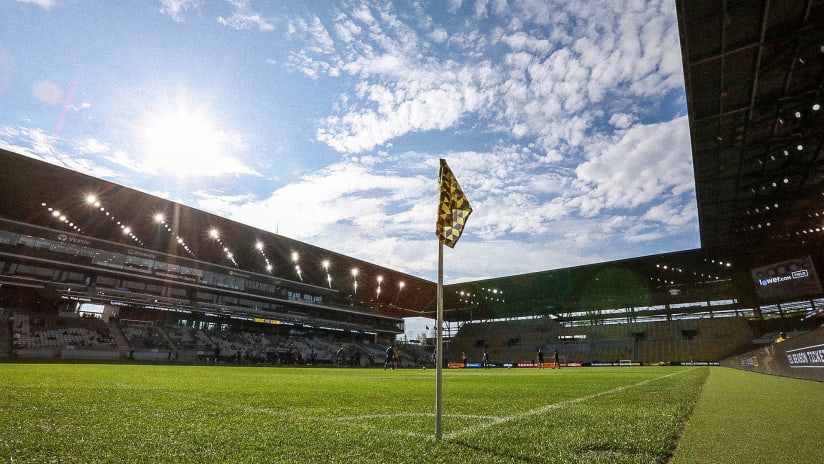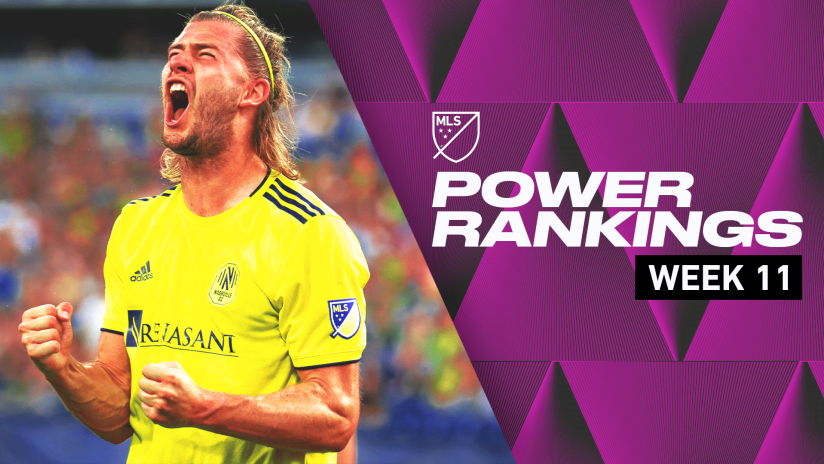When Columbus Crew's Lower.com Field plays host to the New England Revolution on Saturday (5 pm ET | ESPN, ESPN Deportes), it will mark the debut of the 22nd MLS stadium to have been built from the ground up, since Historic Crew Stadium became the league's first soccer-specific stadium in 1999.
Lower.com Field is also the third new stadium to debut in MLS in 2021, following on from fellow state-of-the art venues in FC Cincinnati's TQL Stadium and Austin FC's Q2 Stadium.
Here's a full timeline of new soccer venues that have popped up across North America over the last two decades.
This is the grandfather of them all. The $28.5 million stadium hosted three MLS Cup finals and 10 FIFA World Cup qualifying matches, including four "Dos a Cero" historic showdowns against Mexico. Home to the Crew for more than two decades, it will be home to the club's second team, Crew II. The club's new training facility is also nearby.
Located on the campus of Cal State-Dominguez in Carson, the 27,000-seat stadium is part of a $150 million multi-use sports complex that includes a tennis stadium, a track and field stadium and multiple training fields. After BMO Field's renovation, Dignity Health Sports Complex is the second-largest soccer-specific stadium in MLS. In addition to being home to the LA Galaxy for 18 years, the venue has hosted six MLS Cup finals and the 2003 FIFA Women's World Cup final, among numerous international matches.
Part of Frisco's rapid growth in the early 2000s, this $80 million stadium with a capacity of 20,500 fans has been FC Dallas' home since 2005. The venue also hosted the first of back-to-back MLS Cup finals that year, as well as the U.S. Open Cup final in 2016 (won by FC Dallas) and matches in three consecutive Concacaf Gold Cups from 2015 to 2019. Completed in 2018 as part of a $55 million renovation, the stadium is also home to the National Soccer Hall of Fame.
Built in a similar fashion to Toyota Stadium — a soccer-specific, but multi-use stadium in the suburbs — SeatGeek Stadium was the home of Chicago Fire FC until the club, under new ownership, moved back inside the city to Soldier Field in 2020. The 20,000-seat stadium, which cost $98 million, was home to the 2006 MLS All-Star Game, the 2006 U.S. Open Cup and, ironically, recent Canadian national team World Cup qualifiers due to COVID-19 travel restrictions. The stadium is currently the home of the NWSL's Chicago Red Stars.
The Colorado Rapids' current home is an 18,000-plus seat venue erected in Denver suburb Commerce City in 2007 at the cost of $64.5 million. At just over 5,200 feet above sea level, the venue has the highest elevation of any stadium regularly used by MLS teams. It hosted the 2007 MLS All-Star Game, in addition to a bevy of international matches, none more famous than the USMNT's 1-0 win over Costa Rica in a 2014 World Cup qualifier which earned the title of Snow Clasico.
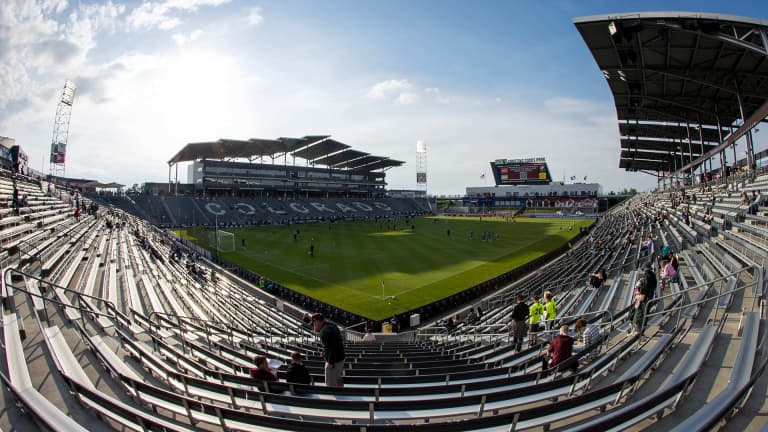
Unlike previous soccer-specific stadiums, BMO Field has been Toronto FC's only home since joining MLS as an expansion side in 2007. Located on the grounds of Exhibition Place, the stadium originally held 21,500, but the capacity expanded to 30,000 when an upper deck was added as part of major renovations from 2014-16. Home to three MLS Cup finals, as well as the 2007 FIFA U-20 World Cup, the 2008 MLS All-Star Game, the 2014 FIFA U-20 Women's World Cup and a historic first Concacaf Gold Cup match in Canada, BMO Field also serves as the home office for the Canadian men's national team.
The 20,000-plus seat stadium in the Salt Lake City suburb of Sandy opened in October 2008 at the cost of $110 million. With breathtaking views of the Wasatch Mountains, Rio Tinto Stadium is arguably the most picturesque soccer-specific stadium in MLS. The 2009 MLS All-Star Game, the second leg of the 2011 Concacaf Champions League final, the 2013 U.S. Open Cup final and the 2013 Concacaf Gold Cup, as well as numerous USMNT and USWNT matches, have been played at the RioT.
This $200 million long-awaited cathedral, which opened its doors in March 2010 as part of a (still ongoing) redevelopment project in Harrison, N.J., is the third largest soccer-specific stadium in MLS. The venue hosted the 2011 MLS All-Star Game, several international soccer matches, including the Concacaf Gold Cup, and an ill-fated USMNT World Cup qualifying defeat to Costa Rica in 2017.
On the Delaware River waterfront with spectacular views of the Commodore Barry Bridge, Subaru Park opened for business in 2010 as the epicenter of the Chester economic revitalization project. The 18,500-seat stadium, which cost $120 million to construct, was home to the 2012 MLS All-Star Game. Last year, the Philadelphia Union won the Supporters' Shield at this iconic venue.
Located near Kansas Speedway in Kansas City, Kan., Children's Mercy Park has been Sporting Kansas City's home since June 2011. Although the seating capacity for soccer matches is 18,467, the stadium, which cost $200 million, regularly draws crowds of more than 20,000 for SKC matches. It has the distinction of being the only stadium to host the MLS All-Star Game, a USMNT match and MLS Cup in the same year, a feat achieved in 2013.
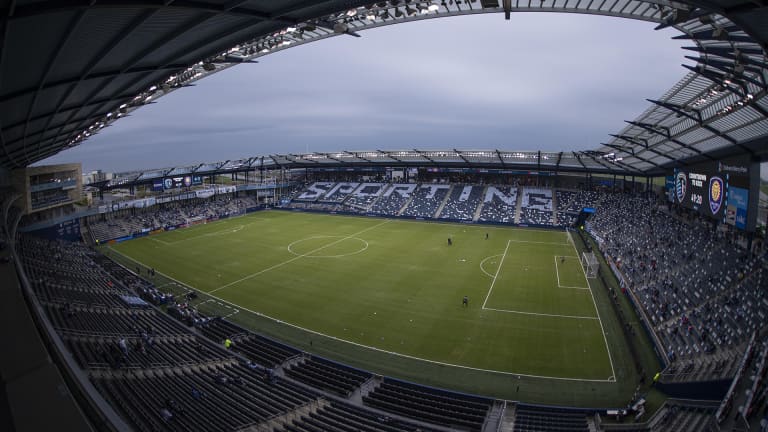
Houston Dynamo FC moved from Robertson Stadium to their new downtown home in May 2012. The 22,000-seat stadium, which cost $95 million to build, was designed by Populous, which also built Minute Maid Park and NRG Stadium in Houston, as well as Wembley Stadium and Emirates Stadium in London and Dublin's Aviva Stadium.
On the grounds of Olympic Park next to Stade Olympique, Stade Saputo opened in 2008 and hosted its first MLS game when CF Montréal joined the league as a 2012 expansion side. Originally costing $13.7 million to build, a $23 million renovation expanded capacity to 20,000 ahead of the club's expansion season.
Located west of the San Jose International Airport, the new home of the San Jose Earthquakes opened in 2015. The venue cost $100 million to build and seats 18,000, plus houses the largest outdoor bar in North America. The venue hosted the 2016 MLS All-Star Game and has hosted both the US men's and women's national teams.
The $155 million home of Orlando City opened in Orlando's Paramore neighborhood in 2017. The Lions' home seats 25,500 and is the first stadium to host MLS, NWSL, and USL teams at the same time. It has hosted the US national teams, as well as the NWSL championship match in 2017, the MLS All-Star Game in 2019 and the bubble tournament that concluded the 2020 Concacaf Champions League.
The official replacement of the Georgia Dome opened in 2017, in the middle of Atlanta United's inaugural MLS season. The $1.6 billion venue hosts 42,500 for soccer and is expandable to 71,000. The venue hosted the MLS All-Star Game and MLS Cup in 2018, then hosted Super Bowl LIII the next year.
Los Angeles' first open air stadium since 1962 opened in 2018 during LAFC's inaugural MLS season. The $350 million stadium is located in Los Angeles' Exposition Park neighborhood and seats 22,000. The venue has hosted the US women's national team and a match during the 2019 Gold Cup.
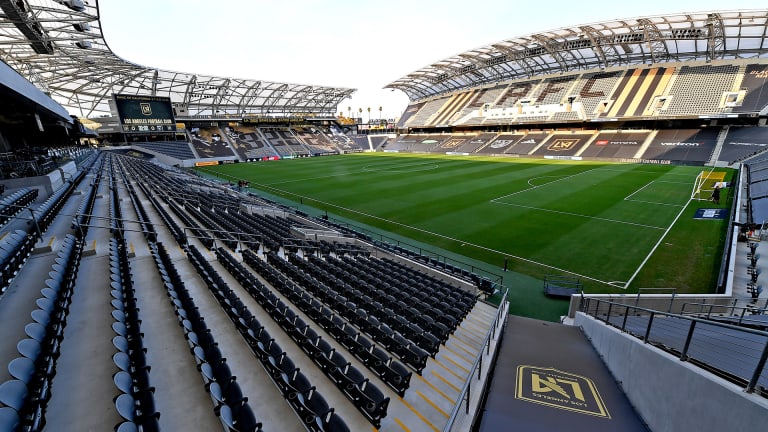
D.C. United's long-awaited soccer-specific home finally became a reality in 2018, as Audi Field opened in Washington, D.C.'s Buzzard Point. The stadium cost $400 million to $500 million to build and seats 20,000. Audi Field has hosted the US men's national team and a Concacaf Nations League match in 2019.
Minnesota United's home in Saint Paul opened in 2019 and seats 19,400. The $200 million stadium was designed by Populous, which has built a number of sporting venues in Minnesota – as well as Houston's BBVA Stadium. The venue hosted two matches during the 2019 Gold Cup and has also hosted the USWNT.
Though the COVID-19 pandemic delayed DRV PNK Stadium's opening, the stadium still hosted Inter Miami home matches during their inaugural MLS season. The $60 million venue in Ft. Lauderdale seats 18,000 and serves as the primary headquarters for both Inter Miami and the club's academy. The stadium has hosted the USMNT and the qualification tournament for the 2021 Gold Cup.
Kicking off a big year of soccer-specific venues in MLS, FC Cincinnati's home opened in the city's West End neighborhood. The stadium seats 26,000 and cost $250 million to build.
MLS' newest club has a brand new stadium to go with it, with Q2 Stadium opening in time for Austin FC's inaugural season. The $260 million venue seats 20,738 and marked its opening by hosting the USWNT. Later this summer it'll host a 2021 Gold Cup semifinal.
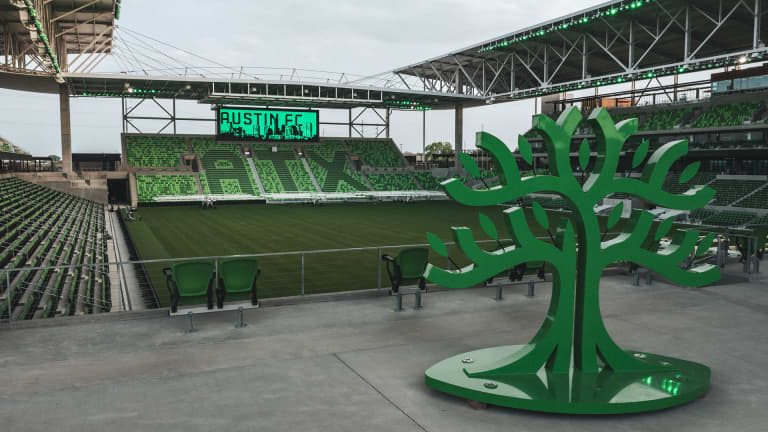
The club responsible for MLS' first soccer-specific stadium will now have the league's latest home, with the Crew set to move in this summer. The $314 million stadium is located at the center of Columbus' Astor Park development and seats 20,011.

